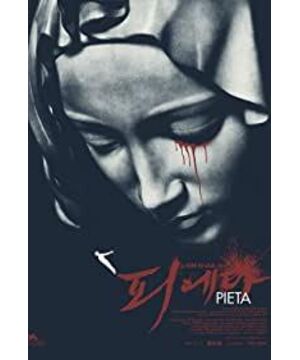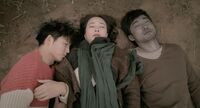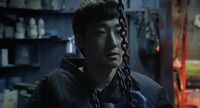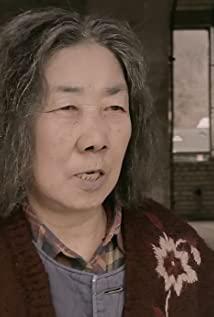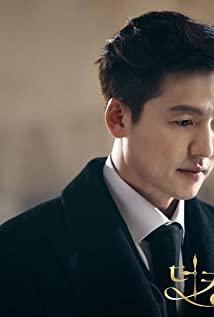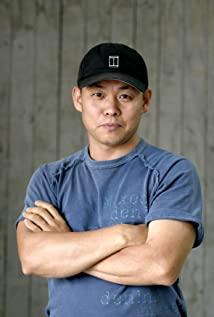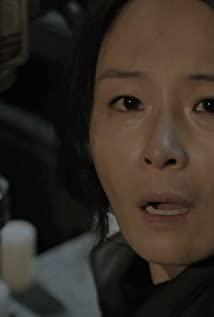Extract marginal characters from life, and replace this marginal character with a more marginal character relationship and situational event, forming a picture and event combination that is free of clutter, interlocking, and highly logically related. . In Kim Ki-duk's film world, this marginal relationship is a "killer" who lacks maternal love and a "mother" who is vengeful. What maintains their relationship is a complex, reciprocal and tangled emotion. Why is it said that the writing marks are obvious? The killer who lacks maternal love meets a middle-aged child who claims to be his mother. After meeting him, he encounters various family relationships with debtors-visiting his son's mother, writing a letter to his mother after committing suicide, willing to be unborn A father who gives everything to a son, which creates a rhyming and contrasting grammar, Kim Ki-duk uses matching events to describe the plot of the film. On the son's birthday, the mother disappears. For the son, the family relationship that has just been completed disappears. The required action is "searching". For the mother, an important item sweater is worn on her own son who has been killed by the killer, and the giver and lover become the avenger, forming a grammatical contrast and transformation for the relationship between the two parties. After that, the two sides continued the actions after this plot point, one seeking, one revenge, the avengers mentality was changing, and the two roles were switched again between killing and pity. For the son, the murderer turned into pity For the mother, he hesitated between killing and pity, and the murderer was killed by his own kindness, which complicates the theme.
An important training topic for the director major of Shanghai Theater Academy is to carry out "object" sketch training, which I personally think is a very advanced method for training students. In every movie, Kim Ki-duk's use of props is very eye-catching. He uses metaphorical props throughout the theme, such as the eel and rabbit in this film, and through props that play an important role in events and plots, such as the sweater in this film. A prop becomes a fulcrum, conveying a certain emotion for the actor, and achieving excellent directorial control for the director.
I don't know if this lyrical writing style is good or bad, but he's certainly controversial. Because I like this style, he has completed a certain mentality of mine, but for some audiences, it will feel very hypocritical. One piece, this is our director Lou Ye in China (personally, I still like Lou Ye, but many friends who study film do not like Lou Ye). This is a discussion of concealing a content and form, which is not discussed in detail in this article.
In this film, I feel that Kim Ki-duk is growing up. One of his grammars, the eastern-style aesthetic creation method is no longer obvious, and instead is the audio-visual style of mainstream Korean genre films (represented by Park Chan-wook). The deformed personal feelings are sublimated into a more universal family relationship, which is very typed in terms of actors, feelings, and the occupations of the characters inside, but the content and themes he tells are still the complex human nature of Kim Ki-duk. class of things.
In the future, Kim Ki-deok's works may have two directions, one is more commercial and the other is more Zen. But there will be less personal lust and personal struggles in the previous works.
View more about Pieta reviews


